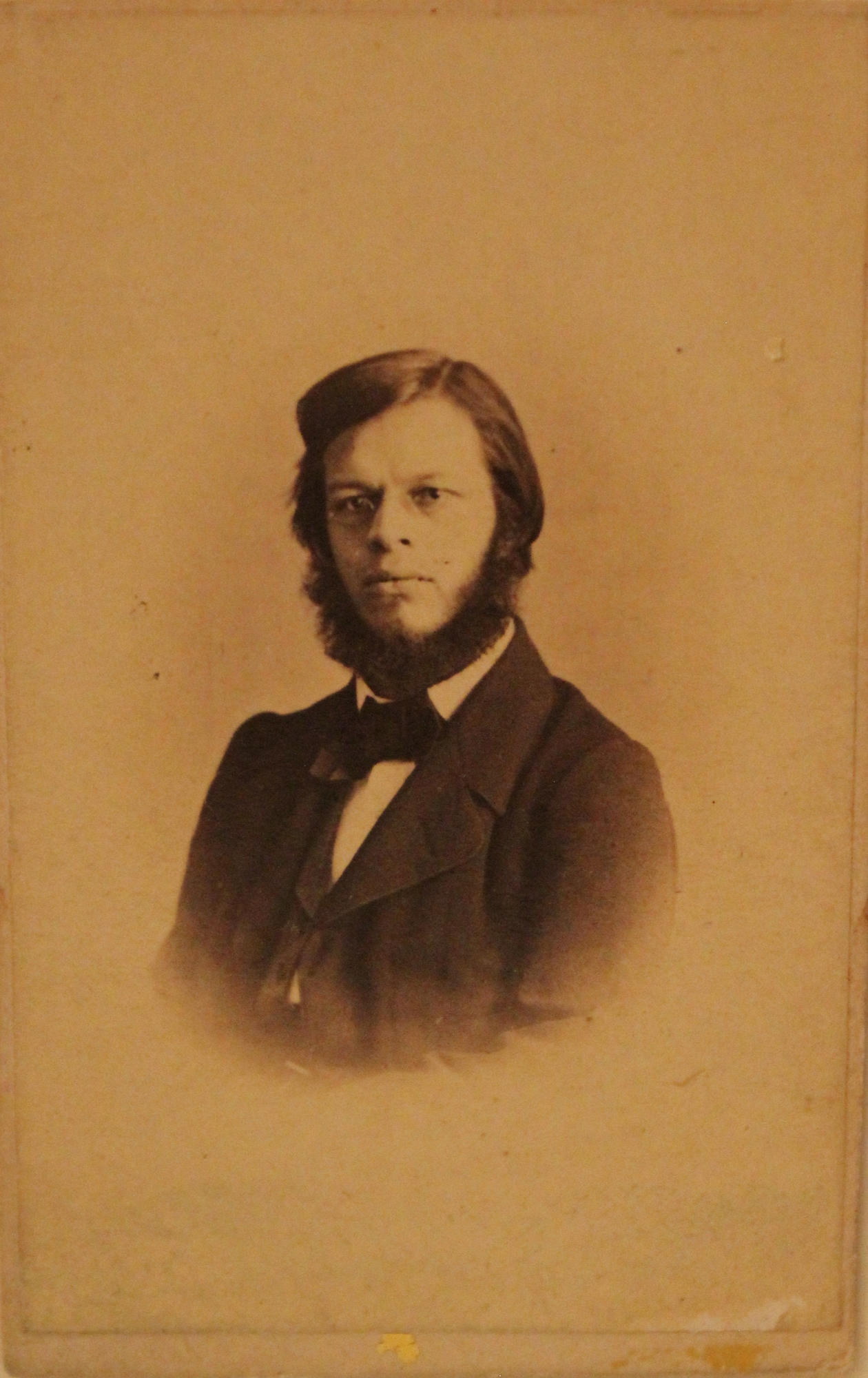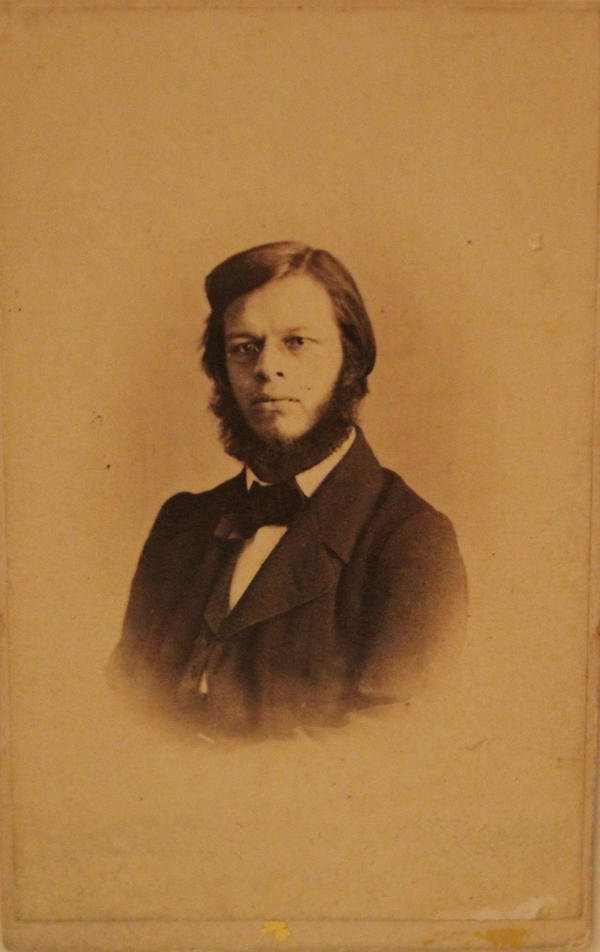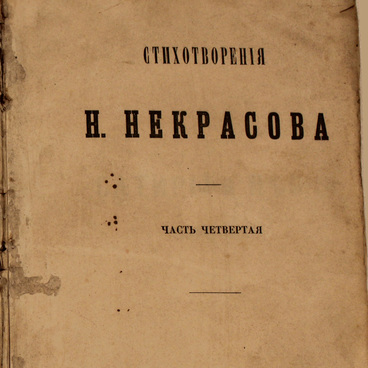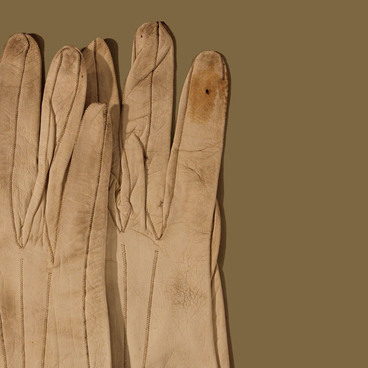Alexander Nikolayevich Pypin was born on April 4th (6th?), 1833 in Saratov. His parents were Nikolay Dmitrievich Pypin, a petty nobleman, and his wife Alexandra Yegorovna Pypina (neé Golubeva). The house where the Pypins lived is now part of the Memorial Estate of N.G. Chernyshevsky. In 1842−1849, Alexander Pypin was a student of the Saratov high school for boys, which he finished with honours: his name was inscribed on the Golden Board of the school.
Most of his life Pypin spent in St. Petersburg, first as an undergraduate student of St. Petersburg University, then studying for his master’s degree there, and later briefly teaching. That city also saw him do most of his life’s scholarly work. Pypin was a prolific contributor to well-known periodicals Sovremennik (The Contemporary) and Vestnik Evropy (The Europe Bulletin), publishing extensively on a wide range of humanitarian subjects.
Pypin devoted his life to scholarship and political journalism. He wrote articles on history, philology, Slavic studies and ethnography. First he published them in periodicals and later reworked the material into a number of monographs: Social Movements in Russia under Alexander I, Features of Literary Opinions in the 1820−1850s, Belinsky: His Life and Correspondence, The History of Russian Ethnography, et al.
Alexander Pypin played a big role in setting up the A.N. Radishchev Saratov State Museum of Fine Arts, that city’s first ever public museum. Explaining the need to open such an institution in his native city, Pypin wrote: “Today, Saratov is a major hub on the Lower Volga River for its economic and trade activity. It is desirable to augment its significance by making it also a centre of public education”.
Alexander Pypin died on November 9th, 1904 and was buried in the cemetery of the New Maiden Convent in St. Petersburg.
The photograph of Pypin in the exposition was taken by Ivan Goch, a famous photographer. Goch was a graduate of the Imperial Academy of Arts and since 1855, a full member of that Academy himself. In the early 1860s, Goch opened a photographic studio in Zolotov’s house in Bolshaya Morskaya Street in St. Petersburg – a prestigious address formerly occupied by the photo studio owned by Eugène Pluchart.
In 1870, Ivan Goch was awarded a bronze medal at the Manufactories Exhibition in St. Petersburg ‘for remarkable likenesses and artistic finish’ of his photographs.
Most of his life Pypin spent in St. Petersburg, first as an undergraduate student of St. Petersburg University, then studying for his master’s degree there, and later briefly teaching. That city also saw him do most of his life’s scholarly work. Pypin was a prolific contributor to well-known periodicals Sovremennik (The Contemporary) and Vestnik Evropy (The Europe Bulletin), publishing extensively on a wide range of humanitarian subjects.
Pypin devoted his life to scholarship and political journalism. He wrote articles on history, philology, Slavic studies and ethnography. First he published them in periodicals and later reworked the material into a number of monographs: Social Movements in Russia under Alexander I, Features of Literary Opinions in the 1820−1850s, Belinsky: His Life and Correspondence, The History of Russian Ethnography, et al.
Alexander Pypin played a big role in setting up the A.N. Radishchev Saratov State Museum of Fine Arts, that city’s first ever public museum. Explaining the need to open such an institution in his native city, Pypin wrote: “Today, Saratov is a major hub on the Lower Volga River for its economic and trade activity. It is desirable to augment its significance by making it also a centre of public education”.
Alexander Pypin died on November 9th, 1904 and was buried in the cemetery of the New Maiden Convent in St. Petersburg.
The photograph of Pypin in the exposition was taken by Ivan Goch, a famous photographer. Goch was a graduate of the Imperial Academy of Arts and since 1855, a full member of that Academy himself. In the early 1860s, Goch opened a photographic studio in Zolotov’s house in Bolshaya Morskaya Street in St. Petersburg – a prestigious address formerly occupied by the photo studio owned by Eugène Pluchart.
In 1870, Ivan Goch was awarded a bronze medal at the Manufactories Exhibition in St. Petersburg ‘for remarkable likenesses and artistic finish’ of his photographs.



